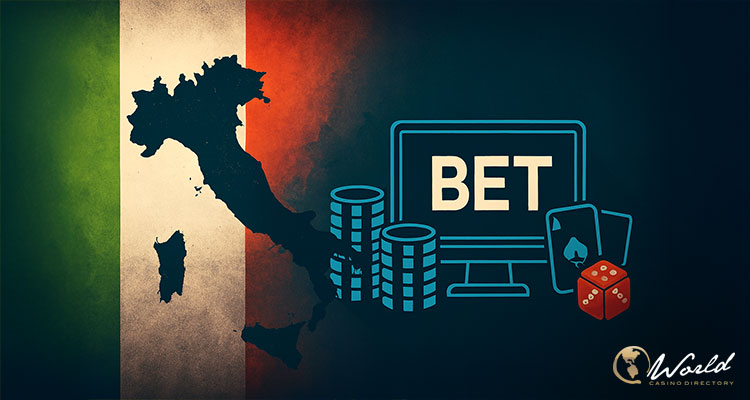Italy’s online betting market is preparing for a sweeping transformation as regulators implement a new framework that will drastically reduce the number of active betting websites from 407 to just 52. The change, led by the Agenzia delle Dogane e dei Monopoli (ADM), Italy’s Customs and Monopolies Agency, is set to take effect on 13 November 2025 and marks one of the most significant reforms in the country’s gambling history.
Under the revamped structure, 46 companies will control 52 licenses, as several operators oversee multiple brands. Flutter Entertainment, for instance, manages Sisal, Snaitech, and the Betfair Exchange under its Italian domain. While these business models remain compliant with ADM regulations, the new rules directly target so-called “skin” websites—affiliate-run domains that have been reselling licensed gaming and betting products.
The ADM has now banned these skin sites by mandating a “one domain per license” rule. Once this takes effect, more than 350 skin-operated domains will go offline, leaving only the officially licensed 52 websites active in Italy. According to the Associazione Nazionale Esercenti Sala Giochi (ASTRO), 315 of these domains are operated by domestic firms, while 92 belong to international companies.
The move is designed to curb unregulated expansion and promote transparency in an industry worth over €21 billion annually, making Italy Europe’s fourth-largest gaming market.
Major Shake-Up Expected to Favor Big Operators
Although the ADM’s decision is seen as an effort to simplify oversight and enforce compliance, industry observers note that the tighter framework will likely benefit larger, well-capitalised companies. Giants such as Flutter, Entain, bet365, and Lottomatica already dominate the market and are better equipped to navigate Italy’s strict advertising laws and operational costs.
The Italian government has earned €365 million in state revenue from the current licensing process, surpassing the Ministry of Economy and Finance’s (MEF) target of €300–350 million. Each licence costs around £7 million, while the sector collectively contributes €8 billion in taxes and other fees each year.
However, smaller operators and new entrants face an uphill battle in a market where promotional channels are heavily restricted. A nationwide ban on gambling-related advertising and sports sponsorships limits visibility for newer brands. Speaking at the SBC Summit Lisbon, Fabio A. Bufalini, Country Director of Stake, cited by SBC News, remarked: “We are a newcomer in terms of brand. Stake is a huge brand globally, but Italy it seems we will start from scratch, and honestly it will not be easy because there is an advertising ban, and it’s not easy for a newcomer to operate and take the right action to establish.”
Leveling the Playing Field for Smaller Operators
Despite the challenges, some analysts believe the skin site ban could actually benefit smaller and mid-sized bookmakers by reducing the sheer number of competitors. With only 51 rivals instead of more than 400, new operators may find the competitive landscape more navigable.
While the advertising ban remains, a more controlled market could create fairer conditions where companies compete directly with licensed peers rather than with hundreds of affiliate sites. Major operators like Betsson and bet365 have managed to work around marketing restrictions by forming partnerships with football clubs through their media subsidiaries—a strategy smaller firms may now emulate with greater focus and clarity.
New Player Protection Rules to Launch in November
The November rollout of the ADM’s framework will not only reduce the number of websites but also introduce stricter player protection rules. Bettors will be required to review and accept updated terms and conditions and establish self-imposed deposit and spending limits before placing wagers.
These limits will include both maximum deposit thresholds and per-bet spending caps. To ensure compliance, operators must display a banner on their websites prompting users to fill out a form to confirm their limits. Players will have six months to complete this process. Failure to do so will suspend their betting privileges with licensed bookmakers, though accounts can be reactivated within three years upon request.
ADM officials describe the reform as a major milestone, stating: “The reform signals a turning point for the online gaming market, which — also in response to growing public concern — aims to raise safety standards for both operators and players.”
Broader Efforts to Combat Illegal Gambling
The ADM’s crackdown on skin sites is part of a larger initiative to combat illegal gambling and protect players from unlicensed operators. Working with the MEF and state-owned tech provider SOGEI, Italy is developing a “cyber security shield” to block access to unauthorized gambling domains across public networks.
Businesses that provide public internet access—such as cafes, kiosks, or gaming lounges—will be required to install this protective software. Those failing to comply risk fines or criminal charges, especially if devices are found intentionally facilitating illegal betting activity.
Italy’s approach mirrors a broader European trend toward affordability checks and responsible gambling oversight, similar to recent measures in the UK, the Netherlands, and Spain. By tightening controls, Italy aims to protect consumers while safeguarding one of its most profitable entertainment industries.
As the new framework takes hold on 13 November, the Italian betting market will enter a new era—one defined by fewer websites, stricter compliance standards, and heightened attention to player welfare.


